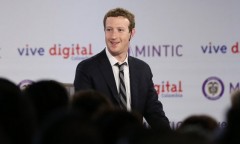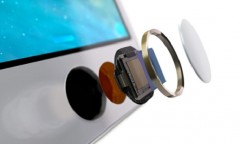By Steve Pak, | February 29, 2016

iPhone 5s Units
Apple won a big case on February 29, Monday when a New York judge ruled the company was not required to unlock an iPhone 5s running iOS 7. The case involves the seized smartphone of a drug dealer who has pleaded guilty and is older than the current battle with the feds over the iPhone 5c of a dead terrorist in the San Bernardino shooting last December.
Like Us on Facebook
Unlike the San Bernardino case involving a 5c model running iOS 9, Apple is able to unlock the phone in the narcotics case. The FBI received a court order requiring Apple to write code to unlock the 5c model, but Apple denied the request, and the case will go to court next month in Riverside, California.
The company argued that creating firmware for the shooter's iPhone is a violation of the United States Constitution, according to Tech Times.
The federal government is using the All Writs Act (AWA) in its cases against Apple. This law dates back to the 1700s and Apple recently reported 12 active cases in which the feds requested Apple to unlock iPhones or iPads.
US Magistrate Judge James Orenstein ruled that the government's requests were not reasonable. An Apple executive has stated Apple hopes that the Riverside judge will be affected by the recent ruling, according to Ars Technica.
The case started in October 2015. Judge Orenstein asked Apple to explain why it thought the government could not force it to unlock a seized smartphone.
Drug dealer Jun Feng pleaded guilty on the charge of possession and intent to distribute methamphetamine.
Apple argued that Feng's phone did not have at least iOS 8 installed so it was not possible to respond to the federal government's warrants to get data from such devices. Full encryption was first included in iOS 8.
Orenstein is also concerned about the government's view of AWA. He challenged the feds' claim that because Apple licenses software instead of selling it the company has some control over it.
Representative Ted Lieu (D-CA) is one of four US congressmen to have a computer science degree. He told Ars Technica he agrees with the ruling because Congress already rejected the FBI's idea of adding encryption backdoors, and now it is trying to do it by applying a 1789 law.
Here's a summary of the FBI's request for Apple to unlock the iPhone 5c:
-
Use of Coronavirus Pandemic Drones Raises Privacy Concerns: Drones Spread Fear, Local Officials Say

-
Coronavirus Hampers The Delivery Of Lockheed Martin F-35 Stealth Fighters For 2020

-
Instagram Speeds Up Plans to Add Account Memorialization Feature Due to COVID-19 Deaths

-
NASA: Perseverance Plans to Bring 'Mars Rock' to Earth in 2031

-
600 Dead And 3,000 In The Hospital as Iranians Believed Drinking High-Concentrations of Alcohol Can Cure The Coronavirus

-
600 Dead And 3,000 In The Hospital as Iranians Believed Drinking High-Concentrations of Alcohol Can Cure The Coronavirus

-
COVID-19: Doctors, Nurses Use Virtual Reality to Learn New Skills in Treating Coronavirus Patients











